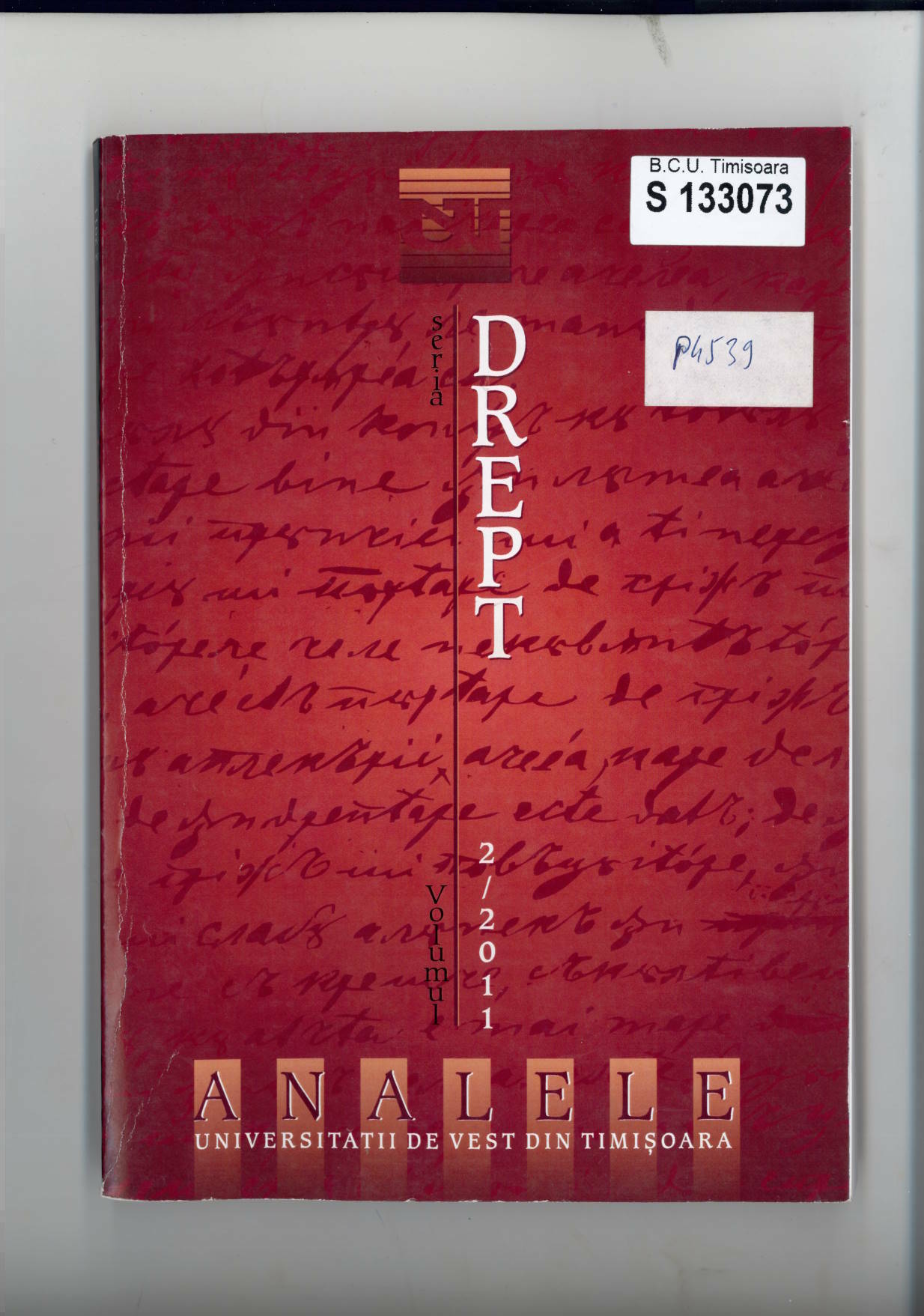Despre vinovăţie – condiţie esenţială a răspunderii civile delictuale pentru fapta proprie, potrivit Codului civil
About guilt - an essential condition of civil tort liability for the deed, according to the Civil Code
Author(s): Florin ManguSubject(s): Law, Constitution, Jurisprudence
Published by: Universul Juridic
Keywords: tort liability for one’s own act; guilt; intention; negligence
Summary/Abstract: Guilt will further remain the idea which explains the engagement of the civil liability for one’s own act, as it is clearly stipulated in the first paragraph of art. 16 of the Civil Code: “If the law does not provide otherwise, the person is only responsible for the actions committed intentionally or with negligence”. Only by way of exception - “If the law does not provide otherwise…” - the idea on the basis of which a person can be held civilly liable for its own act can be different from guilt.The provision of principle contained in art. 16 is restated in the content of art. 1357,para.1 of the new civil regulation, in a form adapted to the specificity of tort liability for one’sown act: “He who causes damage to another by means of a wrongful act, committed intentionally or with negligence, shall be bound to repair it”.By entering a pattern which was already formed, at the level of principle, by the provision of art. 16, the text of art. 1357 para.1 makes guilt the foundation of tort liability for one’s own act, by stating it amongst its conditions.Thus, guilt remains the fourth sine qua non condition of tort liability for one’s own act, condition which is independent, autonomous and delimited with clarity and univocity from the condition of the unlawful deed, as well as from that of the relation of causality between the latter and damage.
Journal: Analele Universității de Vest din Timișoara - Seria Drept
- Issue Year: 2011
- Issue No: 2
- Page Range: 102-115
- Page Count: 14
- Language: Romanian

